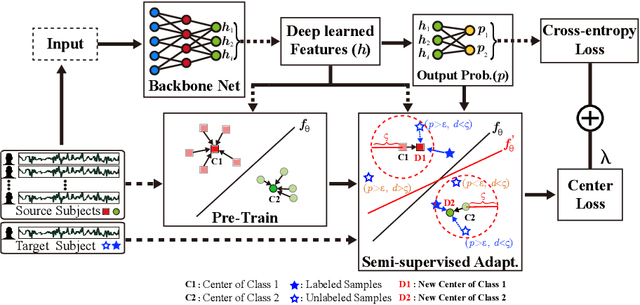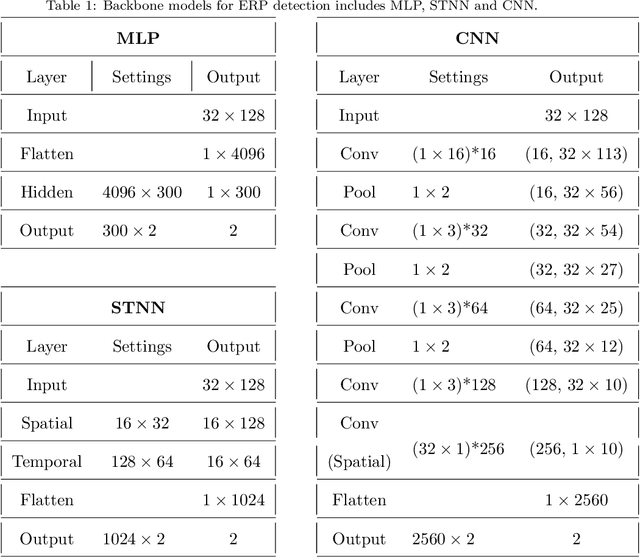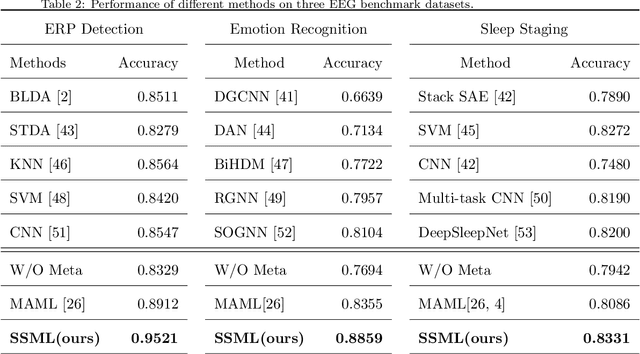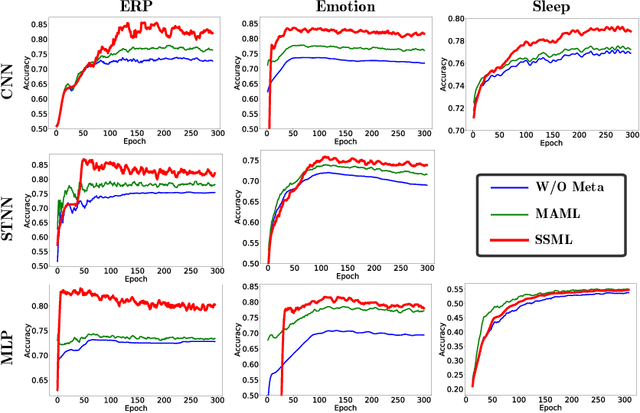Haiyun Huang
Easing Seasickness through Attention Redirection with a Mindfulness-Based Brain--Computer Interface
Jan 15, 2025Abstract:Seasickness is a prevalent issue that adversely impacts both passenger experiences and the operational efficiency of maritime crews. While techniques that redirect attention have proven effective in alleviating motion sickness symptoms in terrestrial environments, applying similar strategies to manage seasickness poses unique challenges due to the prolonged and intense motion environment associated with maritime travel. In this study, we propose a mindfulness brain-computer interface (BCI), specifically designed to redirect attention with the aim of mitigating seasickness symptoms in real-world settings. Our system utilizes a single-channel headband to capture prefrontal EEG signals, which are then wirelessly transmitted to computing devices for the assessment of mindfulness states. The results are transferred into real-time feedback as mindfulness scores and audiovisual stimuli, facilitating a shift in attentional focus from physiological discomfort to mindfulness practices. A total of 43 individuals participated in a real-world maritime experiment consisted of three sessions: a real-feedback mindfulness session, a resting session, and a pseudofeedback mindfulness session. Notably, 81.39% of participants reported that the mindfulness BCI intervention was effective, and there was a significant reduction in the severity of seasickness, as measured by the Misery Scale (MISC). Furthermore, EEG analysis revealed a decrease in the theta/beta ratio, corresponding with the alleviation of seasickness symptoms. A decrease in overall EEG band power during the real-feedback mindfulness session suggests that the mindfulness BCI fosters a more tranquil and downregulated state of brain activity. Together, this study presents a novel nonpharmacological, portable, and effective approach for seasickness intervention, with the potential to enhance the cruising experience for both passengers and crews.
A Novel Semi-supervised Meta Learning Method for Subject-transfer Brain-computer Interface
Sep 07, 2022



Abstract:Brain-computer interface (BCI) provides a direct communication pathway between human brain and external devices. Before a new subject could use BCI, a calibration procedure is usually required. Because the inter- and intra-subject variances are so large that the models trained by the existing subjects perform poorly on new subjects. Therefore, effective subject-transfer and calibration method is essential. In this paper, we propose a semi-supervised meta learning (SSML) method for subject-transfer learning in BCIs. The proposed SSML learns a meta model with the existing subjects first, then fine-tunes the model in a semi-supervised learning manner, i.e. using few labeled and many unlabeled samples of target subject for calibration. It is significant for BCI applications where the labeled data are scarce or expensive while unlabeled data are readily available. To verify the SSML method, three different BCI paradigms are tested: 1) event-related potential detection; 2) emotion recognition; and 3) sleep staging. The SSML achieved significant improvements of over 15% on the first two paradigms and 4.9% on the third. The experimental results demonstrated the effectiveness and potential of the SSML method in BCI applications.
 Add to Chrome
Add to Chrome Add to Firefox
Add to Firefox Add to Edge
Add to Edge